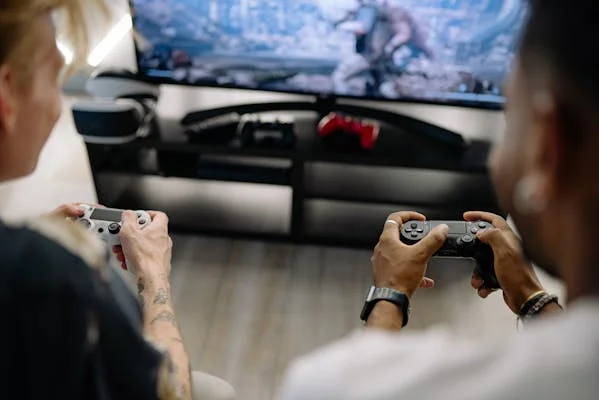In the world of gaming, performance is everything. Whether you’re competing in intense online matches or exploring expansive open-world adventures, smooth gameplay is crucial. But what happens when you’re greeted by a frustrating black screen just when you’re about to dive in? One potential culprit could be your storage device. The SSD 250GB is a popular choice among gamers, but it’s essential to understand its capabilities and limitations. In this guide, we’ll explore how an SSD impacts gaming, address black screen issues, and offer tips for optimizing your gaming setup.
What is an SSD and Why Choose a 250GB Variant?
Understanding SSDs
Solid State Drives (SSDs) are storage devices that use flash memory to store data. Unlike traditional Hard Disk Drives (HDDs), SSDs have no moving parts, making them faster, quieter, and more reliable. They’re particularly beneficial for gamers because they significantly reduce load times, enhance system responsiveness, and improve overall performance.
The Popularity of 250GB SSDs
The 250GB SSD strikes a balance between affordability and performance. While it might not offer the vast storage of larger drives, it’s sufficient for:
- Installing an operating system.
- Running a few AAA games.
- Storing essential files and applications.
However, if not managed properly, limited storage can lead to issues like system slowdowns and black screens during gameplay.
Common Causes of Black Screen Gaming Issues
Black screens during gaming can occur for several reasons, and your storage device might be one of them. Let’s break down the most common causes:
1. Insufficient Storage Space
A 250GB ssd 250gb black screen gaming can fill up quickly, especially if you install multiple large games. When storage nears capacity, the system struggles to manage temporary files and virtual memory, leading to potential crashes or black screens.
2. Corrupted Game Files
If game files are stored on a failing or improperly maintained SSD, they might become corrupted, causing the game to malfunction.
3. Outdated Drivers
Storage devices rely on firmware and drivers to communicate with the system. Outdated or incompatible drivers can cause black screen issues during gaming.
4. Overheating
While SSDs are less prone to overheating than HDDs, excessive heat can still impact performance, especially in gaming setups without adequate cooling.
How SSDs Improve Gaming Performance
Using an SSD, including the 250GB variant, can dramatically enhance your gaming experience in the following ways:
1. Faster Load Times
Games stored on an SSD load significantly faster than those on an HDD. This is particularly noticeable in open-world games with large maps and assets.
2. Smoother Gameplay
SSDs reduce stuttering caused by the game loading textures, models, and other assets on the fly.
3. Enhanced System Responsiveness
From launching games to switching between applications, SSDs ensure your system operates smoothly, reducing delays and interruptions.
Tips to Prevent Black Screen Issues with a 250GB SSD
To ensure your 250GB SSD delivers optimal performance and avoids black screen problems, follow these best practices:
1. Manage Your Storage Space
- Regularly check available storage using system tools.
- Uninstall games and applications you no longer use.
- Store large files on an external drive or cloud storage.
2. Update Drivers and Firmware
- Visit the manufacturer’s website to download the latest firmware and driver updates.
- Use tools like Windows Update to keep your system software current.
3. Optimize Game Settings
- Install games on the SSD for faster performance.
- Adjust in-game settings to balance quality and performance, reducing strain on your system.
4. Maintain Proper Cooling
- Ensure your gaming rig has adequate airflow.
- Use monitoring tools to keep track of temperatures and prevent overheating.
Comparing SSDs: Is 250GB Enough for Gamers?
| Specification | 250GB SSD | 500GB SSD | 1TB SSD |
|---|---|---|---|
| Storage Capacity | Limited to a few games. | Moderate storage for multiple games. | Ample storage for a large library. |
| Price | Affordable | Moderate | Expensive |
| Best For | Casual gamers with a small library. | Enthusiasts with medium needs. | Hardcore gamers and professionals. |
While the 250GB SSD is a great starting point, gamers with larger libraries might find it limiting over time.
When to Upgrade Your SSD
If you’re experiencing frequent black screens, slow performance, or running out of space, it might be time to upgrade. Here are some signs:
- Constantly deleting files to free up space.
- Games taking longer to load or crashing unexpectedly.
- The system running sluggishly despite other optimizations.
Recommended Upgrades
- 500GB SSD: Offers more breathing room for your library while remaining affordable.
- 1TB SSD: Ideal for gamers who want to future-proof their setup.
Conclusion
The ssd 250gb black screen gaming is a fantastic option for gamers on a budget or those with smaller gaming libraries. However, it’s essential to manage your storage wisely and keep your system optimized to avoid issues like black screens. If you’re starting to feel constrained by your current setup, consider upgrading to a larger SSD for a smoother gaming experience. Ready to level up your storage and gaming performance?
FAQs
1. Can I use a 250GB SSD for gaming?
Yes, a 250GB SSD is suitable for gaming, especially if you play a few games at a time and manage your storage wisely. However, larger libraries may require more storage.
2. What causes black screens during gaming?
Black screens can result from insufficient storage, corrupted game files, outdated drivers, or overheating. Ensuring your SSD is properly maintained can help prevent these issues.
3. How can I free up space on my 250GB SSD?
Uninstall unused games and applications, delete temporary files, and consider using external storage or cloud solutions for large files.
4. Is upgrading to a larger SSD worth it?
If you frequently run out of space or experience performance issues, upgrading to a 500GB or 1TB ssd 250gb black screen gaming can significantly enhance your gaming experience.
5. Do SSDs overheat?
While SSDs generate less heat than HDDs, they can still overheat in poorly ventilated setups. Ensure proper cooling to maintain optimal performance.





